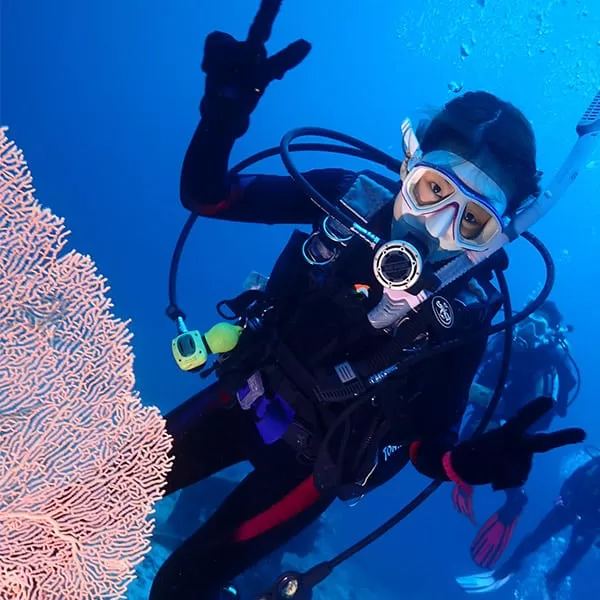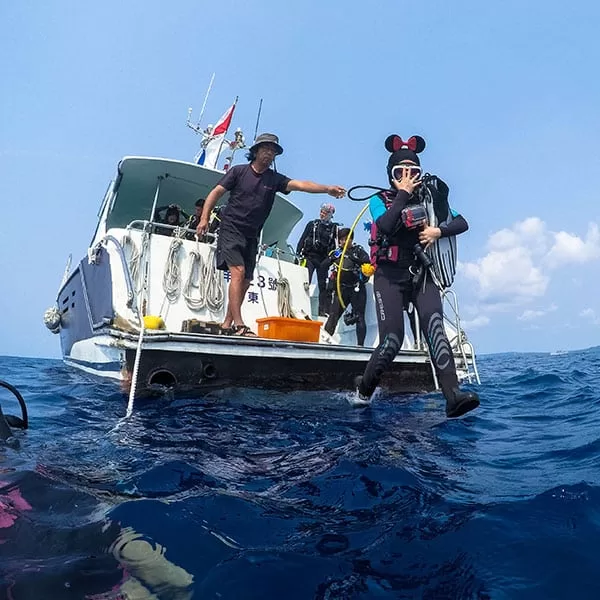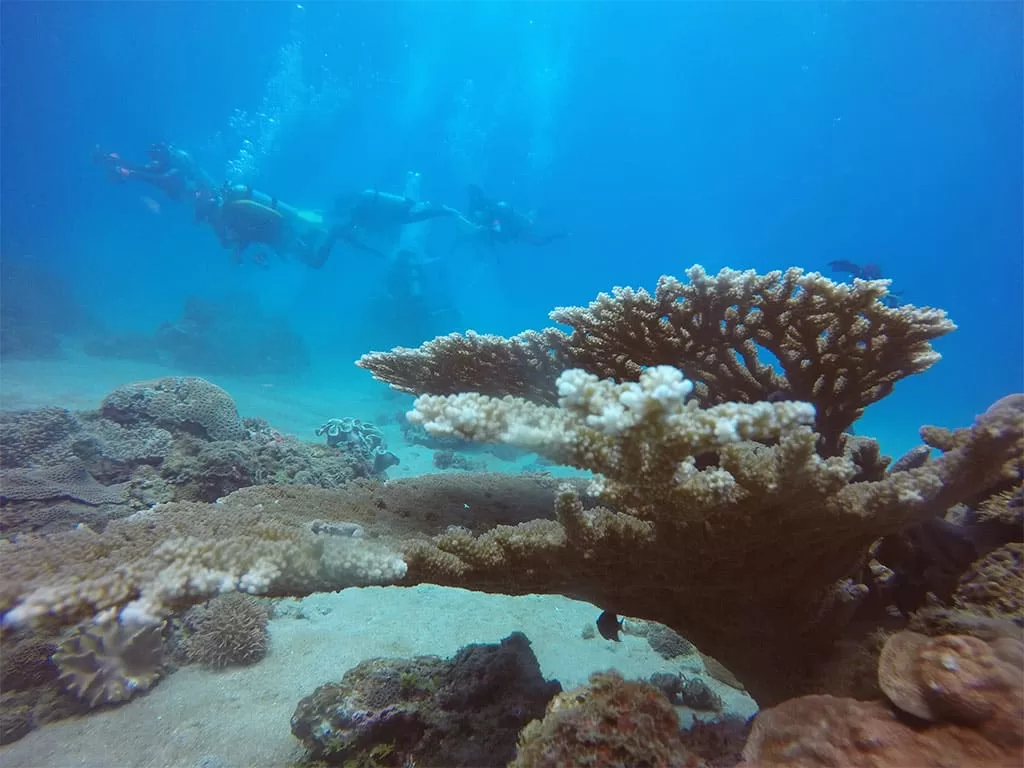2023 Four Things to Avoid After a Scuba Diving Event
您知道當您潛水結束後,您該需要避免那些事項嗎?
安全是水肺潛水的重要組成部分。遵循免減壓潛水的機制,緩慢上升,靠近您的潛伴,並定期檢查耗氣量。但是當您結束潛水回到船上或岸上時,潛水安全機制並尚未結束。
為了保持安全和健康,在水肺潛水後的幾個小時內要記住一些事情。
正如水肺潛水員在他們的課程中學習的那樣,我們在潛水時會積累氮氣。您潛得越深,我們的身體吸收的氮氣就越多。我們緩慢上升並進行安全停留,以便在我們仍在水下時讓氮氣有時間“排出氣體”。上升過快或跳過安全停留可能導致氮氣在血液中形成小氣泡,這就是導致減壓病的原因。
部分的潛水員並沒有意識到這種氮氣在潛水後的幾個小時內仍在繼續釋放。因此,為了安全成功地排氣,潛水後避免一些事情就顯得相當重要。


- 自由潛水 Freediving
freediving是海洋愛好者探索美麗海洋的另一種選擇。但是您知道水肺潛水後自由潛水可能有很大的風險嗎?當您完成極致的潛水體驗後,您可能穿著您的浮潛裝備躍入水中,看看更多的東西,這可能很令人激動。也許有一條蝠魟在船下盤旋……你或許想徑入水中瞧瞧!但最好留在水面,您應該避免摒住呼吸潛入水中。因為水肺潛水後您的體內尚存有未釋放餘氮。當返回水面時進行快速上升可能會影響氮氣排放,正如我們所知,這就是引發減壓病的原因。水肺潛水員通常應遵循與飛行相同的自由潛水規則:一次潛水後等待 12 小時,兩次或更多次潛水後等待 18 小時,最安全的方式當然是等待24小時。為了安全起見,您可以更改行程在水面進行浮潛。 - 前往高海拔地區或搭乘飛機 Go to high Alttitudes or Fly by Plane
如果你參加過水肺潛水課程,你無疑會被告知這條重要的潛水安全守則:水肺潛水後不要飛行!
潛水後飛行的一般規則是在一次潛水後等待 12 小時,在兩次或更多次潛水後等待 18 小時。如果您超過了免減壓限制,或錯過了潛水安全停留,建議您等待 24 小時。
這是因為當我們乘坐飛機上升時,高度會增加,因此氣壓會低於海平面。這會促使您在潛水時積累的氮氣過快膨脹(與上升過快的效果雷同),這將形成導致減壓病風險的主因。
同時建議在潛水後 24 小時內避免前往海拔高度超過 1,000 英尺(300 米)的山峰。出於與飛行相同的原因;海拔高度高於海平面,這會導致周圍環境與潛水時體內氮氣之間的壓力差增加。氮氣膨脹太快,減壓病成為一種風險。
所以在計劃假期行程時應考慮這些風險因素-切記不要在潛水假期最後一天潛水,潛水後不要爬山。 -
洗熱水
您或許喜歡在潛水結束後,洗上一波暖呼呼的熱水澡?尤其是當你在冷水潛水後感到寒冷時!但您可能需要等一段時間再進行盥洗。雖然熱水淋浴或泡澡相當舒服,但是當您的身體浸入熱水中時,您的身體組織會變熱。這將可能促進血液中氮氣氣泡的形成,而這些氣泡就是導致減壓病的原因。氣體的溶解度與溫度有關。例如,當您看到水沸騰時,水達到足夠熱的溫度時就會出現氣泡。
當然這些都沒有沒有固定規則,但 DAN(潛水員警示網)建議您在潛水後等待 5 到 30 分鐘,然後再洗熱水澡或泡澡。建議,如果您真的等不及要在潛水後立即進行沖澡或泡澡,請您嘗試更保守地潛水(更淺且完全在無減壓限制範圍內)以減少潛水後留在您體內的氮氣量,並且使用溫水淋浴或泡澡,而不是非常熱的熱水淋浴或泡澡。 -
舒壓按摩
沒有什麼比舒壓按摩更令人徹底放鬆的,這或許是您的潛水假期的自我放鬆。但是,建議您可能希望避免在水肺潛水後進行深層組織按摩。
雖然沒有太多依據支持這一理論,但許多水肺潛水人士認為,按摩可能會導致氣泡形成,因為它會增加您身體中血液的流動。一些人認為它還會將這些氣泡推入關節並導致它們被困住並引起疼痛。潛水後避免按摩還有一個原因。深層組織按摩可能會導致組織疼痛和肌肉酸痛。由於疼痛和酸痛是減壓病的相關症狀,因此可能會被誤解並導致就診。或許,你可能認為你的肌肉酸痛或疼痛只是因為你用力按摩,而忽略了你的潛水後症狀,其實是減壓病。這可能會導致推遲發現您需要的治療動作。
減壓病的體徵和症狀
現在您知道水肺潛水後應避免什麼以避免減壓病。但是,如果您或您的潛水夥伴被減壓病擊中,您會認識到減壓病的體徵和症狀嗎?
以下是需要注意的主要體徵和症狀:
關節和/或肌肉疼痛或酸痛/刺痛、麻木或針刺感/麻痺/皮疹/皮膚發癢或疼痛/疲勞/頭痛/混亂/視力受損/聽力喪失或耳鳴/弱點/噁心或嘔吐/咳血/無法控制的顫抖/昏迷
如果您遇到任何這些症狀,或在其他潛水員身上看到這些跡象,請迅速尋求醫療幫助,並盡可能的情況下在水面上呼吸純氧。
如果您有興趣學習安全潛水。查看 SSI開放水域潛水員課程,在那裡您將學到所有您需要了解的關於初學者的水肺潛水知識。

